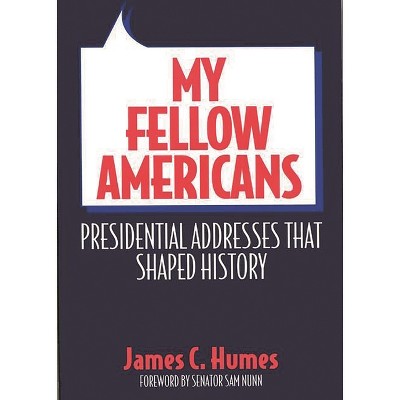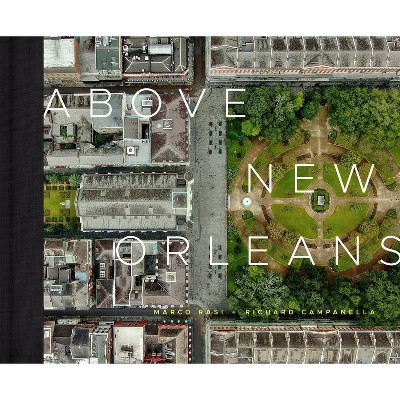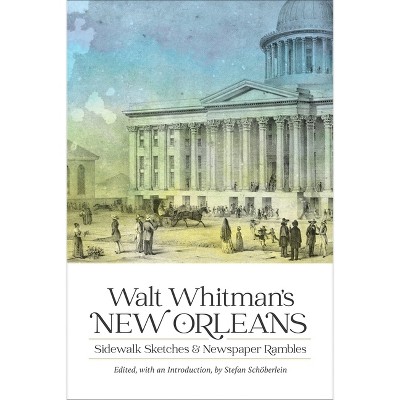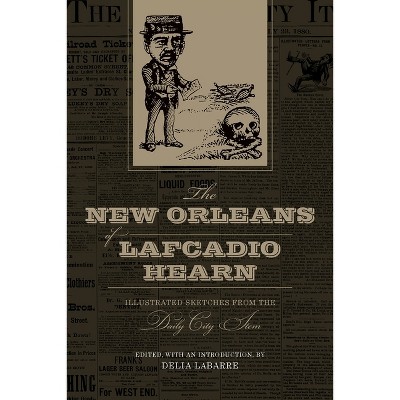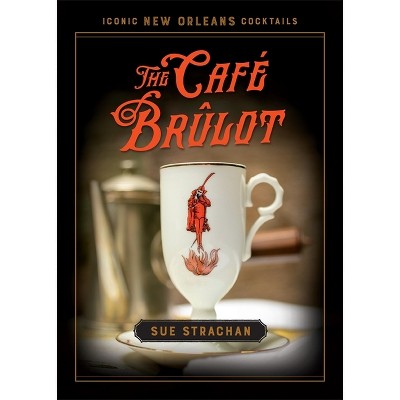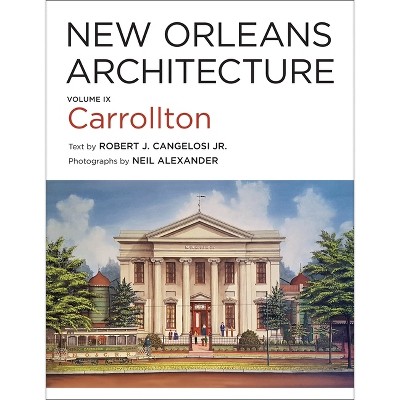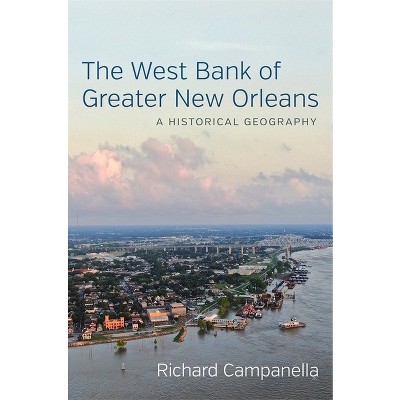Sponsored

American Indians in Early New Orleans - by Daniel H Usner (Hardcover)
In Stock
Sponsored
About this item
Highlights
- From a peace ceremony conducted by Chitimacha diplomats before Governor Bienville's makeshift cabin in 1718 to a stickball match played by Choctaw teams in 1897 in Athletic Park, American Indians greatly influenced the history and culture of the Crescent City during its first two hundred years.
- About the Author: Born and raised in New Orleans, Daniel H. Usner is the Holland N. McTyeire Professor of History at Vanderbilt University.
- 208 Pages
- History, Native American
Description
Book Synopsis
From a peace ceremony conducted by Chitimacha diplomats before Governor Bienville's makeshift cabin in 1718 to a stickball match played by Choctaw teams in 1897 in Athletic Park, American Indians greatly influenced the history and culture of the Crescent City during its first two hundred years. In American Indians in Early New Orleans, Daniel H. Usner lays to rest assumptions that American Indian communities vanished long ago from urban south Louisiana and recovers the experiences of Native Americans in Old New Orleans from their perspective.
Centuries before the arrival of Europeans, American Indians controlled the narrow strip of land between the Mississippi River and present-day Lake Pontchartrain to transport goods, harvest resources, and perform rituals. The birth and growth of colonial New Orleans depended upon the materials and services provided by Native inhabitants as liaisons, traders, soldiers, and even slaves. Despite losing much of their homeland and political power after the Louisiana Purchase, Lower Mississippi Valley Indians refused to retreat from New Orleans's streets and markets; throughout the 1800s, Choctaw and other nearby communities improvised ways of expressing their cultural autonomy and economic interests--as peddlers, laborers, and performers--in the face of prejudice and hostility from non-Indian residents. Numerous other American Indian tribes, forcibly removed from the southeastern United States, underwent a painful passage through the city before being transported farther up the Mississippi River. At the dawn of the twentieth century, a few Indian communities on the north shore of Lake Pontchartrain continued to maintain their creative relationship with New Orleans by regularly vending crafts and plants in the French Market. In this groundbreaking narrative, Usner explores the array of ways that Native people used this river port city, from its founding to the World War I era, and demonstrates their crucial role in New Orleans's history.Review Quotes
Anyone who still believes the 'vanishing Indian' vanished from New Orleans after the Purchase needs to read Daniel H. Usner's compact gem of a book. For decades afterwards, Indians threaded through the city, playing stickball matches on the edge of town and vending foodstuffs in its markets. Usner is brilliant in forcing readers to see Indians as they were, not as whites imagined them to be.--Lawrence N. Powell, author of The Accidental City: Improvising New Orleans
Daniel Usner restores American Indians to their rightful place as genuine New Orleanians. With rare empathic skill and delicate sleuthing, Usner accounts for the most difficult struggles of American Indians across the generations. Urban Indians, so often repressed in public memory, here emerge from the dark woods of imperialist writing with their creativity, their pain, and their dignity intact.--Shannon Lee Dawdy, author of Patina: A Profane Archaeology
Daniel Usner's new book provides a rich portrait of early New Orleans as a complex site for Indigenous political, economic, and social relations with Europeans and early American settlers in the Deep South. As with much of Usner's other writings, this book is an important and critical corrective to this under-studied area of Indigenous-settler relations.--N. Bruce Duthu, author of Shadow Nations: Tribal Sovereignty and the Limits of Legal Pluralism
Through painstaking research and compelling writing, Usner shows the many ways in which urban and Indigenous histories in New Orleans are far from mutually exclusive--in fact, they are bound up together in the workings of settler colonialism and the strategies of Indigenous survivance.--Coll Thrush, author of Native Seattle: Histories from the Crossing-Over Place
About the Author
Born and raised in New Orleans, Daniel H. Usner is the Holland N. McTyeire Professor of History at Vanderbilt University. He is the author of Indians, Settlers, and Slaves in a Frontier Exchange Economy: The Lower Mississippi Valley before 1783; American Indians in the Lower Mississippi Valley: Social and Economic Histories; Indian Work: Language and Livelihood in American History; and Weaving Alliances with Other Women: Chitimacha Indian Work in the New South.Shipping details
Return details
Frequently bought together
Trending Non-Fiction






